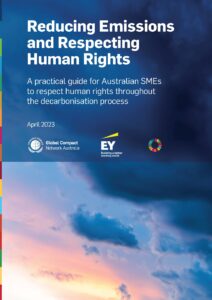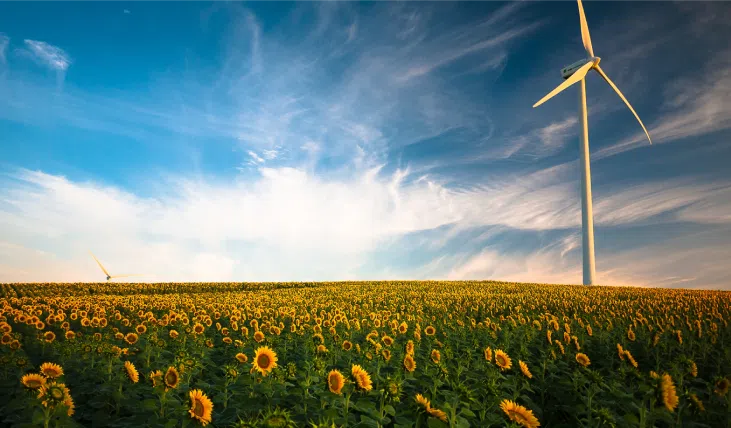Climate change is one of the most grave threats to the enjoyment of human rights
Physical impacts of climate change, including extreme weather events and sea-level rise are already having devastating impacts on the enjoyment of basic rights in place to support the inherent dignity of human life, including the right to life, self-determination, enjoyment of culture, highest attainable standard of health, food security and integrity of person. These impacts are inherently discriminatory and already affecting those who are both least responsible for climate change and most at risk.
| Universal human right | Impact of climate change |
| The right to life | Extreme weather events such a flooding, cyclones or fires resulting in loss of life |
| Right to self-determination, to enjoyment of culture, and freedom from arbitrary interference with privacy and home |
Damage, destruction or inaccessibility to sites of cultural or spiritual significance resulting in the inability to practice and enjoy one’s culture |
| Right to highest attainable standard of health | Increase in air pollution or water contamination leading to higher rates of related illnesses or mortality |
| Right to adequate standard of living including food and housing | Degradation of crop yield quality; rising sea-levels and extreme weather events leading to housing scarcity, lack of access to safe and affordable housing |
| Right to clean drinking water and sanitation | Rising sea-levels resulting in increased salinisation, extreme weather events such as flooding or cyclones, impacting availability of clean or potable drinking water |
In 2022, the United Nations General Assembly (UNGA) declared that access to a clean, healthy and sustainable environment is a universal human right.
While this human right is comprised of a number of other previously recognised rights, it’s endorsement at the UNGA and later reference in the updated International Labour Organization (ILO) Declaration on Fundamental Principles and Rights at Work, means that companies should be also considering their impact on its enjoyment as a standalone human right within their relevant human rights due diligence frameworks.
“Every person, everywhere, has a right to eat, breathe and drink without poisoning their bodies in doing so, and to be able to live harmoniously with the natural world, without constantly growing threats of ecosystem collapse and climate catastrophe.” – Michelle Bachelet, United Nations High Commissioner for Human Rights, 2022
The emerging low carbon economy in Australia
In its Sixth Assessment Report released in 2022, the Intergovernmental Panel on Climate Change (IPCC), concluded that global temperatures are increasing at a rate that is unprecedented within the last 2000 years. This is resulting in extreme weather events such as flooding, fires, and heat waves having devastating impacts on local communities across Australia.
Whilst some companies are making transformational changes to their business and/or implementing policies to support the transition to net-zero, collectively these transformations are not yet ambitious enough to decarbonise the entire Australian economy.
In 2023, we recognise that the severity of future adverse environmental and social impacts caused by climate change relies on the ability of both governments and business to decarbonise effectively and equitably, at pace. The impact of climate change can be minimised if key stakeholders work collaboratively, implement robust regulation and divert resources — financial, policy and human — to action on meeting net-zero, including investment in resilience and adaptation for all communities.
For businesses looking to thrive in the emerging low-carbon economy, the best way to build resilience to risk introduced by climate change is to establish an effective and equitable decarbonisation strategy.
Human rights impacts of decarbonisation
As signatories to the 2015 Paris Agreement continue to introduce regulatory measures designed to reduce emissions, businesses are beginning to recognise that the moral imperative to decarbonise their value chain is quickly becoming a business continuity issue.
“We need to focus on two urgent priorities: cutting emissions and achieving climate justice” – United Nations Secretary General, António Guterres, UNSG Briefing to the United Nations General Assembly, February 2023
However, as Australia transitions towards a low carbon economy, businesses need to recognise that the decarbonisation process introduces its own human rights risks. Understanding these risks and their associated impacts is critical to ensuring a just, equitable and orderly transition.
Reducing Emissions and Respecting Human Rights
|
|
In 2023, UN Global Compact Network Australia released a publication in collaboration with EY Australia outlining practical guidance for SME businesses in respecting human rights throughout the transition process. The publication has been tailored towards an SME audience however practical implementation steps will be relevant to businesses of all sizes. Read here. |
Get Involved
The UN Global Compact Network Australia works in partnership with the World Wildlife Fund Australia to support businesses across Australia to commit to the initiative, set ambitious targets and implement them. To get involved and join the Australian Science Based Targets Community of Practice contact us at secretariat@unglobalcompact.org.au.
Contact us
To find out more about our Business and Human Rights workstream, contact:





